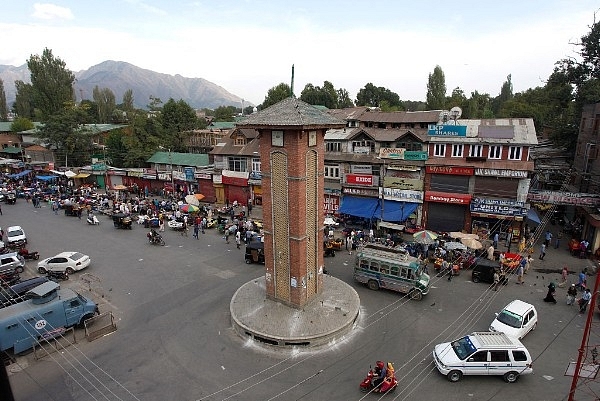
Why Article 35A Has To Go
Article 35A – what it is, and the debate surrounding it.
A three-judge bench of the Supreme Court is set to decide whether to refer the pleas challenging Article 35A to a five-judge Constitution bench.
Article 35A accords special rights and privileges to the people of Jammu and Kashmir. It was introduced in a hush-hush manner on 14 May 1954 through a presidential order. The Jawaharlal Nehru government didn’t invoke Article 368 to amend the Constitution. More precisely, it bypassed Parliament and applied the Article to Jammu and Kashmir. It is not part of the main body of the Constitution; it finds a mention only in an appendix.
Article 35A
Article 35A declares all Indians persona-non-grata in Jammu and Kashmir. Under this Article, no Indian – not even the President and the Prime Minister of the country – can buy an inch of land in state. In effect, the Article creates a high wall between the people of Jammu and Kashmir and the rest of Indians.
Article 35A gives absolute, unbridled, and extraordinary power to the Jammu and Kashmir government to grant or not grant citizenship rights to any Indian or a group of Indians. In addition, no Indian can acquire education and get government scholarship in the state.
Text
Notwithstanding anything contained in this Constitution, no existing law in force in the State of Jammu and Kashmir, and no law hereafter enacted by the Legislature of the State:
(a) defining the classes of persons who are, or shall be, permanent residents of the State of Jammu and Kashmir; or
(b) conferring on such permanent residents any special rights and privileges or imposing upon other persons any restrictions as respects —
(i) employment under the State Government;
(ii) acquisition of immovable property in the State;
(iii) settlement in the State; or
(iv) right to scholarships and such other forms of aid as the State Government may provide, shall be void on the ground that it is inconsistent with or takes away or abridges any rights conferred on the other citizens of India by any provision of this part.
What’s the problem?
It is this Article that has hurt all the non-Jammu-Kashmir residents in the country, in general, and refugees from Pakistan and the women in the state, in particular. There are almost two lakh Hindu-Sikh refugees from Pakistan living in Jammu since their migration from the adjoining Pakistan’s Sialkot area in 1947. They do not have the right to property, right to education, right to government jobs, right to vote, and right to a bank loan. They are Indian nationals, but not citizens of the state. They have been crying for justice for decades, but to no avail.
As far as the women in Jammu and Kashmir are concerned, their choice of marriage is restricted. If a daughter of the state marries a non-permanent resident of the state, her children and husband can’t exercise any right in the state. Their status becomes similar to the status of refugees from Pakistan.
It needs to be underscored that before 24 September 2004, revenue authorities in the state used to issue permanent resident certificates for the daughters of the state with a stamp of “valid till marriage” on them. This, despite the fact that the full bench of Jammu and Kashmir High Court had declared this obnoxious practice unconstitutional in 2002 and directed the Jammu and Kashmir government not to discriminate between the sons and daughters of the state while issuing “permanent resident certificates” to them.
The Kashmiri leadership has to respect the sentiments of the people of Jammu, whose have stood for complete integration into India and application of the Indian Constitution to the state in full, minus Articles 370 and 35A, which keep the state aloof from the rest of the country.
Further headings on the matter concerning the validity of Article 35, therefore, bear tremendous importance, and much is at stake.